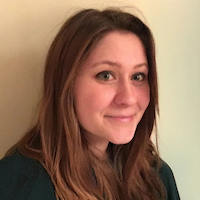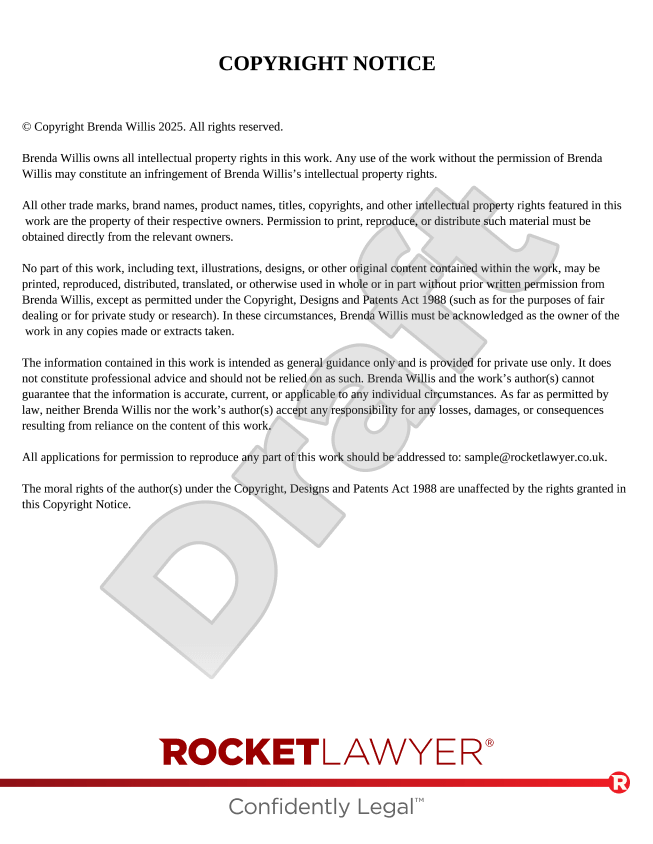What is copyright?
Copyright is an intellectual property right that protects the authors and creators of tangible creative works. ‘Creative works’ covers a wide range of creations, including, but not limited to:
-
literary works (eg novels and poems)
-
artistic works (eg paintings or photographs)
-
musical works (eg songs and melodies)
-
dramatic works (eg the script of a play or the screenplay for a TV programme)
-
films
-
sound recordings
How long copyright lasts depends on the type of work protected, as specified in the Copyright, Designs and Patents Act (CDPA) 1988. For example, for artistic, musical, dramatic, and literary works, the copyright lasts for the life of the author and for 70 years after the author's death.
When a creative work’s copyright protection ends, it enters the public domain. This means that the creative work can be used (or re-used) for free, without somebody needing permission (in the form of a licence) to do so.
For more information, read Copyright and Moral rights for copyright.
Is Peter Pan in the public domain?
Whether or not Peter Pan is in the public domain depends on the creative work (eg novel or movie) in question.
In the UK, the copyright for the 1904 play (‘Peter Pan; or, the Boy Who Wouldn't Grow Up’) and the 1911 novel (‘Peter and Wendy’) originally expired in 1987 - 50 years after JM Barrie’s death, as was the law at the time. In 1995, in an attempt to harmonise copyright protection across the European Union (EU), the length of copyright protection was extended to the current 70-year period. This meant that both the play and novel were again protected by copyright until 2007.
That said, the play ‘Peter Pan’, was granted a special exception under the CDPA 1988.
Under Schedule 6 of the CDPA 1988, the Great Ormond Street Hospital (GOSH), a leading British children's hospital, was granted the right to a royalty (more on this below) in respect of ‘any public performance, commercial publication or communication to the public of the whole or any substantial part of the work or an adaptation of it’. This means that GOSH receives royalties from all:
-
stage productions (eg theatre productions)
-
adaptations
-
publications (including audiobooks and e-books)
-
films, and
-
radio broadcasts
of the whole or any substantial part of the play ‘Peter Pan’, or any adaptation of it in the UK.
This means that anyone who wishes to broadcast, publish or produce a version of the play in the UK must pay a royalty to GOSH.
This right applies in perpetuity, which means that it will never expire.
It is important to note that this special exception is not a perpetual copyright (ie a copyright that will never expire), as the CDPA 1988 does not grant GOSH any creative control over the use of the play nor the right to refuse permission to use it.
Further, the rights granted to GOSH under the CDPA 1988 do not include derivatives (eg sequels, prequels or spin-offs) or extracts.
What is a royalty for the purposes of ‘Peter Pan’?
Generally speaking, a royalty is a payment made by one party to another party for the right to use a creative work (eg the novel ‘Peter and Wendy’ or the Disney movie ‘Peter Pan’).
For the purposes of the play ‘Peter Pan’, a royalty refers to a percentage of the ticket price or book price payable to GOSH.
Note that under Schedule 6 of the CDPA 1988, where a royalty is payable to GOSH, a different form of payment may be agreed between the parties.
Why is the play ‘Peter Pan’ treated differently for copyright?
In 1929, after publishing the script to the play ‘Peter Pan’, JM Barrie gifted his copyright in relation to all works featuring Peter Pan to GOSH (ie GOSH became the new copyright holder). This means that GOSH owned all rights to Barrie’s characters (eg Peter Pan, Wendy Darling, Captain Hook and Tinkerbell) and his original writings.
As a result of Barrie’s donation, GOSH received royalties every time the play was put on, the novel was sold, or any other Peter Pan product was sold or distributed. This gift was later confirmed in Barrie’s will.
This gift was intended to provide a source of income to support the hospital's efforts to provide medical care for children.
When Barrie’s works featuring Peter Pan entered the public domain, GOSH lost this significant source of income. In recognition of Barrie’s generous gift and the hospital's work, the House of Lords voted to grant GOSH royalties in perpetuity for the play Peter Pan under Schedule 6 of the CDPA 1988.
Is Peter Pan in the public domain in the EU or the USA?
The international situation regarding the copyright status of works featuring Peter Pan is different from that in the UK.
EU
Before 1996, whether or not any works featuring Peter Pan were protected by copyright depended on the individual laws of each EU country. However, in 1996, when the duration of copyright protection was harmonised within the EU, all of Barrie’s works were protected within EU countries until 31 December 2007. This means that, since 1 January 2008, all of Barrie’s works featuring Peter Pan have been in the public domain in the EU.
An exception to this rule is Spain, where Barrie’s works were protected for 80 years after his death. As a result, Barrie’s works featuring Peter Pan entered the public domain in Spain in 2018.
USA
In the USA, the novel ‘Peter and Wendy’ is in the public domain. Similarly, as of 1 January 2024, the play ‘Peter Pan’ is in the public domain.
Existing derivative works
While Barrie’s works featuring Peter Pan have entered the public domain in the EU and USA, existing derivative works (eg Disney’s animated ‘Peter Pan’, Steven Spielberg’s ‘Hook’ and Christina Henry's novel ‘Lost Boy’) may still be covered by copyright.
What does this mean in practice?
In practice, this means that care should be taken when considering performing ‘Peter Pan’ or adapting Barrie’s works. Check whether the work featuring Peter Pan is still protected by copyright and, if so, seek the relevant permission to use it.
If you wish to perform or adapt the play ‘Peter Pan’ in the UK, make sure to seek the correct permissions and pay the relevant royalties. For more information, see GOSH’s guidance on staging theatre performances of Peter Pan.
If you have any questions about copyright in general, read Copyright and do not hesitate to Ask a lawyer.





